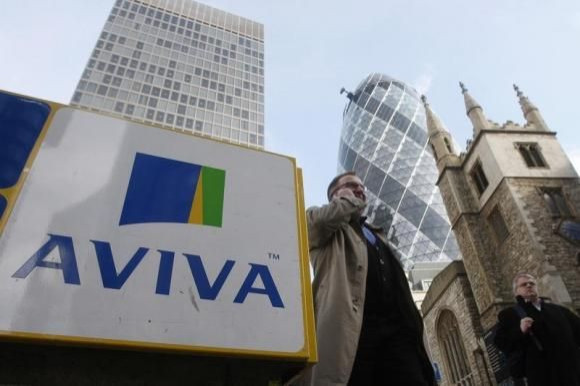Some British Insurers Agree To Suspend Dividends Over Growing Coronavirus-Related Uncertainties

KEY POINTS
- Aviva, Direct Line Insurance Group, RSA Insurance Group and Hiscox all agreed to suspend dividends
- The Bank of England strongly urged insurers to scrap dividends
- European, Australian regulators asked their insurers to stop dividends
An increasing number of British insurance companies have decided to cancel billions of pounds of dividend payments in order to maintain significant cash levels during the coronavirus pandemic.
Aviva, Direct Line Insurance Group, RSA Insurance Group and Hiscox Ltd., an underwriter at Lloyds of London, were among the insurers to halt their dividends.
The Bank of England praised the decision, saying: “We welcome the prudent decision from some insurance companies [Wednesday] to pause dividends given the uncertainties associated with COVID-19.”
Most large British banks agreed to scuttle their dividends last week.
“This is a difficult decision, not least in terms of the initial impact it will have on shareholders,” said RSA Chairman Martin Scicluna. “No company exists in a vacuum and at this time we judge it to be in the best long-term interests of RSA to show forbearance on dividends and maximize our capability to support customers under the terms of their respective policies and play our part in industry initiatives to support relief efforts.”
Aviva said it remained “well capitalized with strong liquidity” and that the retention of its final dividend in early March will boost its capital ratio by about 7% to approximately 182%.
Hiscox also said it will not conduct any stock buybacks.
“COVID-19 presents an unprecedented global challenge... It is too early to assess the impact of changes in customer behavior that will arise given the broader consequences,” said Direct Line Chief Executive Officer Penny James.
The Bank of England had earlier advised the insurance industry to suspend dividends as it faces likely heavy costs and losses from the spread of the virus.
“When U.K. insurers’ boards are considering any distributions to shareholders or making decisions on variable remuneration, we expect them to pay close attention to the need to protect policyholders and maintain safety and soundness, and in so doing to ensure that their firm can play its full part in supporting the real economy throughout the economic disruption arising from COVID-19,” wrote Bank of England’s Deputy Governor Sam Woods.
Russ Mould, investment director at stockbroker A.J. Bell, said: “The issue does not appear to be the insurers’ ability to pay. Instead, [regulators] wants the insurers to keep the capital as an extra buffer against potential losses relating to COVID-19 and the associated economic downturn.”
Mould added: “There may be another reason for insurers to wish [to] toe the regulatory line, namely public perception. Paying out large amounts of cash to shareholders when tales of refusal to pay out those hit yet again by floods or whose livelihood has been destroyed by the lockdown is not necessarily a good look.”
Insurance regulatory bodies including the European Insurance and Occupational Pensions Authority, or EIOPA, and Britain’s Prudential Regulation Authority had already urged insurers to restrain both dividend payments and bonuses paid to senior staff.
Prudential Regulation told insurers that they should manage their resources “prudently” and “pay close attention to the need to protect policyholders” when deciding whether to pay dividends.
But at least two large U.K. insurers Legal & General Group and Prudential plc have – as of Wednesday morning -- rejected pleas to scrap dividends.
Legal & General said it plans on paying a final dividend for the year.
Bank of America analysts commented that the Bank of England’s “lack of comment on companies which still intend to pay their dividends suggests that the regulator is not intending to pursue action against them. However, further actions cannot be ruled out.”
But some other analysts think the holdouts will have to follow suit.
“We would not rule out other U.K. insurers following this precedent [of withdrawing dividends] and see Beazley, St James’s Place, Prudential and M&G as all having higher levels of uncertainty at the current time,” JP Morgan analysts said. They added that Legal & General has one of the highest levels of asset risk.
EIOPA also called on European reinsurers to temporarily suspend dividends in order to protect policyholders and absorb potential losses, while the Australian Prudential Regulation Authority requested their insurers and banks to consider deferring dividend payments.
However, the cancellation of dividends will devastate many pension funds and individual investors who have concentrated insurance stocks in their portfolios on the strength of their traditionally reliable income streams and growth.
© Copyright IBTimes 2025. All rights reserved.





















